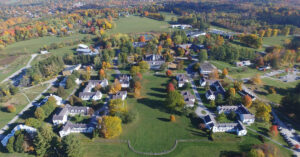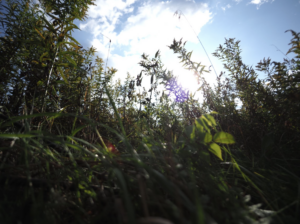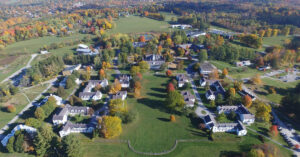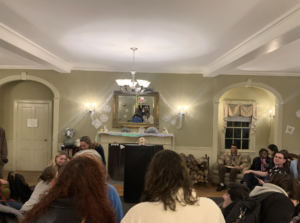Welcome back to the Bennington Horror Story!
If you haven’t read part one of my Haunting of Hill House Review, I recommend you do that! It is based on the Haunting of Hill House TV Show adaptation, inspired by the novel of the same name written by Shirley Jackon.
Jackson’s novel was published in 1959 and is regarded as one of the finest horror novels of all time. In Stephen King’s 1981 non-fiction review of horror novels, Danse Macabre, it is said that Haunting of Hill House should be considered the greatest horror fiction book of the 20th century.
The novel is simply a must-read for all fans of horror and mystery.
SPOILERS AHEAD!
TW: Mentions of suicide and mental illness.
The book follows a group of mismatched individuals who explore the hostile entity that is Hill House: Dr. Montague (try and pronounce his name correctly/the same way every time you read it), an occult scholar trying to find proof that hauntings are real; Eleanor, an unfortunate young woman who is familiar with the supernatural; Theodora, Dr. Montague’s young assistant; and Luke, the heir of Hill House. The characters begin as a scattered bunch that slowly starts to mold into a cohesive group, similar to a family.
we are introduced to all of the characters at the beginning of the book, including that of Hill House which is considered a character as well. Jackson writes an absolutely breathtaking paragraph when introducing the house:
“No live organism can continue for long to exist sanely under conditions of absolute reality; even larks and katydids are supposed, by some, to dream. Hill House, not sane, stood by itself against its hills, holding darkness within; it had stood so for eighty years and might stand for eighty more. Within, walls continued upright, bricks met neatly, floors were firm, and doors were sensibly shut; silence lay steadily against the wood and stone of Hill House, and whatever walked there, walked alone.”
This introduction brings us closer to understanding how Hill House evokes the feeling of fear while also seeming completely decent and mundane.
Slowly, as they spend more and more time with and inside Hill House, each of the residents starts experiencing unexplainable and strange occurrences. Much of this is described vaguely or mentioned in passing as if most of the supernatural occurrences occur without the characters knowing. This was a stylistic choice on Jackson’s part, to keep the mystery afloat and make Hill House even eerier.
Eleanor seems to experience things that no one else is even aware of. Interestingly enough, Eleanor seems to, at times, be losing grip on reality and it’s never fully disclosed whether some of what she experiences is her own imagination or the paranormal. Evidently, Hill House somehow affects Eleanor more than others, perhaps even possessing her. In order to save Eleanor, Dr. Montague and Luke send her away, but she insists that Hill House is her home and she cannot leave. She finally gets into her car but crashes into a tree on purpose.
After Eleanor’s suspected suicide we are left with the repetition of Hill House’s description, indicating that Hill House is on its own again, puppeteering nobody and having no one embody it. The reader is left with a very vague explanation of what had happened. Was Eleanor possessed by Hill House, which eventually killed her? Was she emotionally unstable and commit suicide? Perhaps both? Perhaps Jackson was mirroring Eleanor’s troubles in the supernatural reality of Hill House, similarly to what Flanagan did with the bent neck lady.
The true horror of Hill House is its ability to mirror and amplify the horrors in someone’s head, as is the case with Eleanor. I really liked the idea behind Jackson’s metaphor – one’s own horrors can be reflected in the horrors of Hill House, and a similar approach was taken in the making of the TV Show which we can see when looking at Eleanor, Luke, and essentially any member of the Crain family. The parallels and similarities between the book and show aren’t as vivid, but they very much exist.
While books are usually deemed the better alternative compared to their on-screen adaptations, and as often as that is the case, I must admit between Haunting of Hill House novel and TV Show – it’s a tie. Be it because Flanagan’s TV adaption is only loosely based on Shirley Jackson’s novel or because both are simply that good, I was pleasantly surprised by my own conclusion.

Iva Sopta is a first-year student studying political science, journalism, and languages.
Bennington Horror Story Columnist, Investigative Journalist, Copy-Editing Team member, Journalistic Education Team member










Be First to Comment